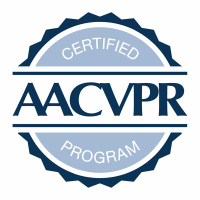Pulmonary rehabilitation is an outpatient program for people with chronic lung conditions who are symptomatic and find it hard to perform daily living activities.

Program benefits include:
- Reduces the likelihood for readmission to the hospital
- Improves your health-related quality of life
- Reduces shortness of breath
- Improves your level of physical fitness
- Provides support in a fun, caring environment
Referrals to our Pulmonary Rehab program may be made by speaking with your primary care provider or your pulmonologist.
Pulmonary Rehabilitation, also may be called Pulmonary Rehab, is a customized outpatient program involving prescribed exercise, diet intervention, and education regarding lung disease. The purpose of Pulmonary Rehab is to help improve your overall health and help manage your lung disease symptoms. Education classes regarding lung disease include how to manage your diet, breathing techniques, quitting smoking, medication overview, and more.
For the first six sessions at Pulmonary Rehab patients will be monitored with a heart telemetry device in order to get a baseline of vitals during exercise. Patients will also be monitored with a pulse oximeter to establish oxygen saturation levels while exercising.
For some patients, the social interaction and sense of community is the vital point of coming to rehab. Health professionals, such as exercise physiologists, registered nurses, and registered dietitians, are here to explain what has happened to their body when living with lung disease to help create a sound mind and relieve stress. Patients are also kept accountable by health professionals for taking control of their health while being coached along the way.
Patients who complete a Pulmonary Rehab program will have:
- Improved quality of life
- Increased physical activity
- Reduced COPD symptoms
- Exercise, nutrition, and education counseling on how to manage symptoms
- 90% of patients have less hospital visits
- Improved emotional health
Read More